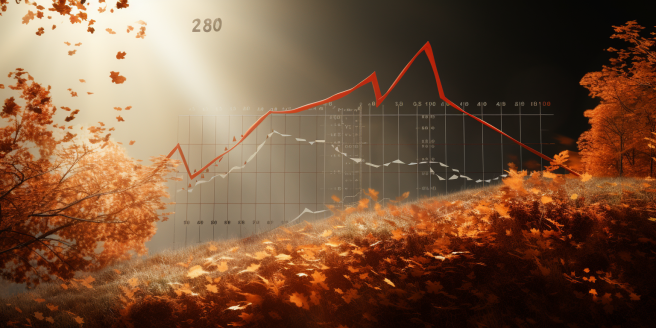Decoding the Consumer’s Role in the Economy
The economy is a bit like a jigsaw puzzle, with various pieces interacting to form the big picture. One of the most crucial pieces? That’s you, the consumer. You, along with all other consumers, are the ones who use the goods and services produced within the economy. The choices you make – what to buy, how much to spend, and where to splash your cash – have a direct impact on the economy’s health and growth.
Consumer spending is a major player in aggregate demand, which is the driving force behind economic growth. When you and other consumers spend more, businesses sell more. This leads to increased production and potentially more jobs. But if consumers tighten their purse strings, businesses may have to cut back on production and jobs, causing the economy to shrink.
Zooming in on the Power of Consumer Spending
Consumer spending isn’t just a player in the economy; it’s a powerhouse. It makes up about 70% of the U.S. Gross Domestic Product (GDP), making it the largest and most consistent component of demand. This spending covers everything from your weekly grocery haul and new clothes to healthcare and education expenses.
When consumers feel confident and spend more, businesses respond by ramping up production to meet the increased demand. This leads to more jobs, higher incomes, and even more spending, creating a positive cycle of economic growth. But if consumer spending drops, it can trigger a negative cycle of economic contraction.
The Ripple Effect of Consumer Habits on Economic Growth
Your daily habits as a consumer can significantly influence economic growth. For example, if you regularly spend a large chunk of your income, it can boost demand for goods and services, stimulating economic growth.
But if you’re more of a saver, consistently stashing away a large portion of your income, it can decrease demand for goods and services, slowing economic growth. However, high savings can also provide a pool of funds for investment, which can stimulate economic growth in the long run.
The Domino Effect of Consumer Confidence on the Economy
Consumer confidence is a key domino that can set off a chain reaction in consumer habits and, consequently, the economy. When consumers are optimistic about their future financial situation, they’re more likely to spend, driving economic growth. But if consumers are feeling pessimistic about their financial future, they’re more likely to save, slowing economic growth.
Consumer confidence is influenced by various factors, including the overall health of the economy, the job market, personal financial situation, and political climate. Therefore, keeping consumer confidence high is crucial for economic welfare.
The Connection Between Consumer Habits and Job Creation
Your habits as a consumer can directly impact job creation. When consumers spend more, businesses need to ramp up production to meet the demand, leading to more jobs. But if consumers spend less, businesses may need to cut back on production, leading to job losses.
Moreover, the types of goods and services that consumers choose to spend on can influence the types of jobs that are created. For instance, if consumers spend more on technology, it can lead to more jobs in the tech industry.
The Double-Edged Sword of Consumer Debt in the Economy
Consumer debt is a double-edged sword in the economy. On one side, it can stimulate economic growth by enabling consumers to spend more than their current income. This increased spending can lead to higher demand for goods and services, stimulating production and job creation.
On the flip side, high levels of consumer debt can pose risks to economic stability. If consumers bite off more debt than they can chew and struggle to repay it, it can lead to financial distress and bankruptcy, which can send shockwaves throughout the economy.
The Role of Consumer Saving Habits in Economic Stability
Consumer saving habits also play a key role in economic stability. When consumers save a portion of their income, it provides a pool of funds that can be used for investment. This investment can stimulate economic growth by increasing productivity and creating jobs.
Moreover, high levels of savings can provide a safety net against economic shocks. If consumers have a substantial amount of savings, they can continue to spend during economic downturns, helping to stabilize the economy.
The Impact of Consumer Habits on Inflation and Deflation
Consumer habits can also influence inflation and deflation. When consumers spend more, it can lead to increased demand for goods and services. If this demand outstrips supply, it can lead to inflation, or a general rise in prices.
Conversely, when consumers spend less, it can lead to decreased demand for goods and services. If this demand falls short of supply, it can lead to deflation, or a general decline in prices. Both inflation and deflation can have significant impacts on economic welfare, so managing consumer habits is crucial.
How Consumer Habits Shape Market Competition
Consumer habits can also shape market competition. When consumers have a preference for certain products or brands, it can lead to increased competition among businesses to win these consumers over. This competition can stimulate innovation and improve product quality, benefiting consumers and the economy.
On the other hand, if consumers aren’t picky about their choices, it can lead to less competition, potentially resulting in lower product quality and higher prices.
Encouraging Healthy Consumer Habits for Economic Welfare
Given the significant impact of consumer habits on the economy, it’s crucial to encourage healthy consumer habits. This can include promoting financial literacy to help consumers make informed decisions about spending and saving, encouraging responsible borrowing to prevent excessive consumer debt, and fostering competition to ensure high-quality products and services.
Moreover, policies can be implemented to stimulate consumer spending during economic downturns and encourage saving during economic booms. By managing consumer habits in this way, we can promote economic welfare and stability.


